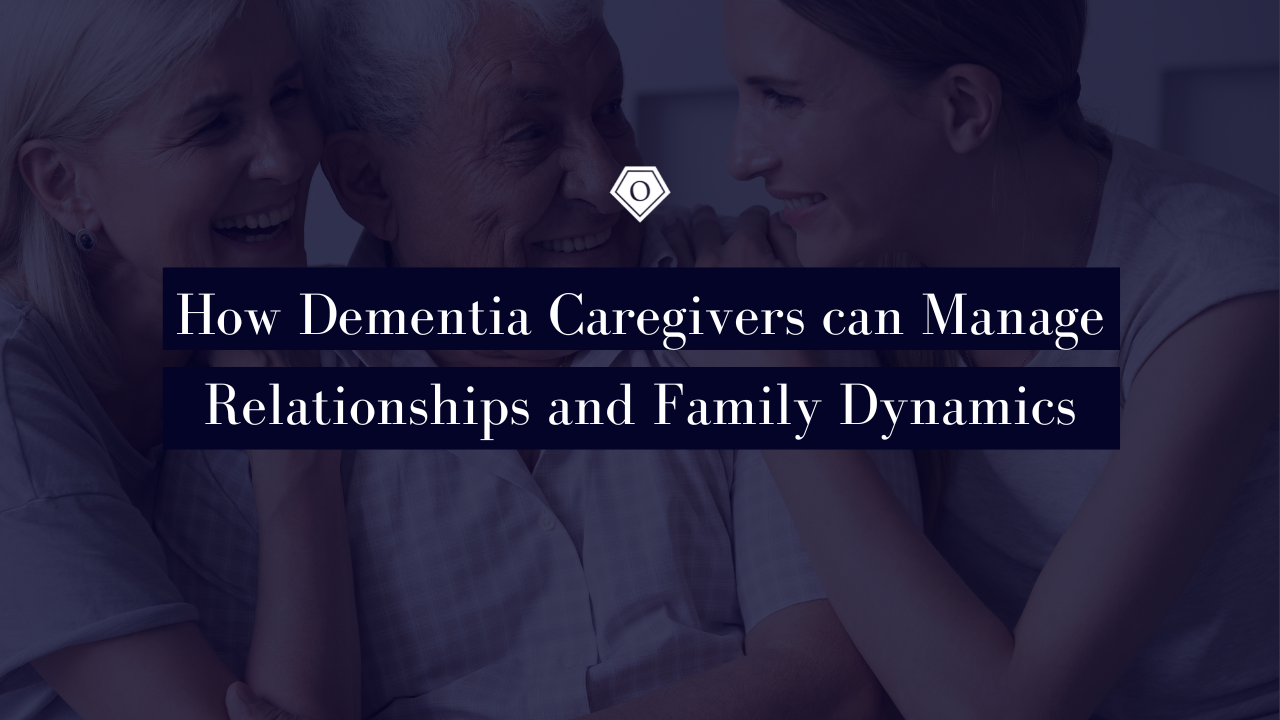As a dementia caregiver, one of your role’s most complex and emotionally demanding aspects is managing the intricate web of relationships and family dynamics surrounding your loved one.
Dementia’s progression can create significant family challenges, ranging from disagreements about care decisions to the emotional toll it takes on everyone involved. Navigating this terrain requires patience, empathy, and effective communication. In this journey, caregivers often find themselves not only tending to the needs of their loved one but also acting as mediators, educators, and emotional anchors within the family unit. This guide offers insights and strategies to help you foster understanding, harmony, and support among family members while providing the best care possible for your loved one with dementia.
To foster positive relationships and dynamics, dementia caregivers can try:
Open Communication: Encourage open and honest communication among family members. Have regular family meetings to discuss care plans, concerns, and updates regarding the loved one’s condition.
Educating Family Members: Ensure that family members clearly understand dementia, its progression, and the caregiving responsibilities. Provide them with educational materials and resources to increase awareness.
Delegating Responsibilities: Divide caregiving responsibilities among family members based on their strengths and availability. Create a caregiving schedule to ensure everyone has a role to play.
Setting Realistic Expectations: Help family members understand the limitations of dementia and what to expect at different stages. Realistic expectations can reduce frustration and stress.
Seeking Professional Advice: Consider involving a healthcare professional or social worker to facilitate family discussions and provide guidance on care decisions.
Respecting Each Other’s Contributions: Recognize and appreciate each family member’s unique contributions and efforts in caring for the loved one. Avoid judgment and criticism.
Providing Emotional Support: Encourage emotional support within the family. Share feelings and concerns, and consider counseling or support groups to help cope with the emotional challenges of caregiving.
Try Respite Care: Arrange for respite care or temporary relief for primary caregivers. This allows them to take breaks and maintain their own well-being.
Aim for Financial Planning: Discuss financial matters openly, mainly if the cost of care is a concern. Create a budget and explore financial assistance options if needed.
Aim for Advance Care Planning: Encourage discussions about advance care planning, including end-of-life decisions, living arrangements, and legal matters. Having these conversations in advance can prevent conflicts later on.
Remember that each family’s situation is unique, and it may be necessary to adapt these strategies to fit your specific circumstances. Building a strong support network within your family and seeking outside help when needed can go a long way in maintaining healthy relationships and family dynamics while caregiving for someone with dementia. Many times, it’s easier to have a healthcare provider come in as the expert and communicate with family members to manage conflict.
Bringing in home health care to help manage relationships and family dynamics in dementia caregiving is a decision that should be based on the specific needs and circumstances of the caregiver, the person with dementia, and the family. Here are some signs and situations where it may be beneficial to consider involving home healthcare professionals:
Overwhelming Responsibilities: When the primary caregiver feels overwhelmed and is struggling to balance caregiving with other responsibilities such as work, personal life, and self-care, it may be time to bring in home health care for respite or regular support.
Increased Care Needs: As dementia progresses, the individual’s care needs may increase. Professional assistance can be invaluable if the caregiver finds it difficult to manage these increasing needs alone.
Family Conflict: If family dynamics become strained, leading to frequent conflicts and disagreements about the care and decision-making for the person with dementia, a professional caregiver can provide an objective perspective and support in managing these conflicts.
Complex Medical Care: If the person with dementia has complex medical needs or requires specialized care (e.g., managing medication, wound care, or physical therapy), home health care professionals can offer expertise in these areas.
Safety Concerns: If the person with dementia exhibits behaviors that pose safety risks to themselves or others (e.g., wandering, aggression), professional caregivers can help implement safety measures and strategies to mitigate these risks.
Emotional and Behavioral Challenges: When the emotional and behavioral challenges of caregiving become too overwhelming, professional caregivers with experience in dementia care can provide strategies for managing difficult behaviors and improving the emotional well-being of both the caregiver and the person with dementia.
Respite Care Needs: Caregivers often need breaks to prevent burnout. Home health care professionals can offer respite care, allowing the primary caregiver to recharge and reduce stress.
Medical Emergencies: In the event of a medical emergency or a sudden decline in the person with dementia’s health, professional home health care can provide immediate assistance and coordination of care.
Complex Legal and Financial Issues: If there are complex legal and financial matters related to the person with dementia’s care (e.g., guardianship, estate planning), a professional can offer guidance and support in navigating these issues.
Advance Care Planning: When it’s time to discuss advance care planning, including end-of-life decisions, involving a professional can facilitate these conversations and ensure that everyone’s wishes are understood and respected.
The decision to bring in home health care should be made in consultation with the primary caregiver, the person with dementia (if possible), and other family members involved in caregiving. It’s essential to assess the specific needs, goals, and preferences of all involved parties and to seek guidance from healthcare professionals and social workers to make an informed decision. Home health care can be a valuable resource in maintaining the well-being of the caregiver and the person with dementia while addressing family dynamics and conflicts.

Choosing long-term care is a burden that often falls to adult children and family caregivers. Our team is here to support you throughout the journey. Download our booklet to explore options that are right for your aging loved one and family.
Wondering what type of long-term care is best for you or your loved one? Our free booklet will help you evaluate the differences and costs between home care, nursing homes and assisted living facilities.






